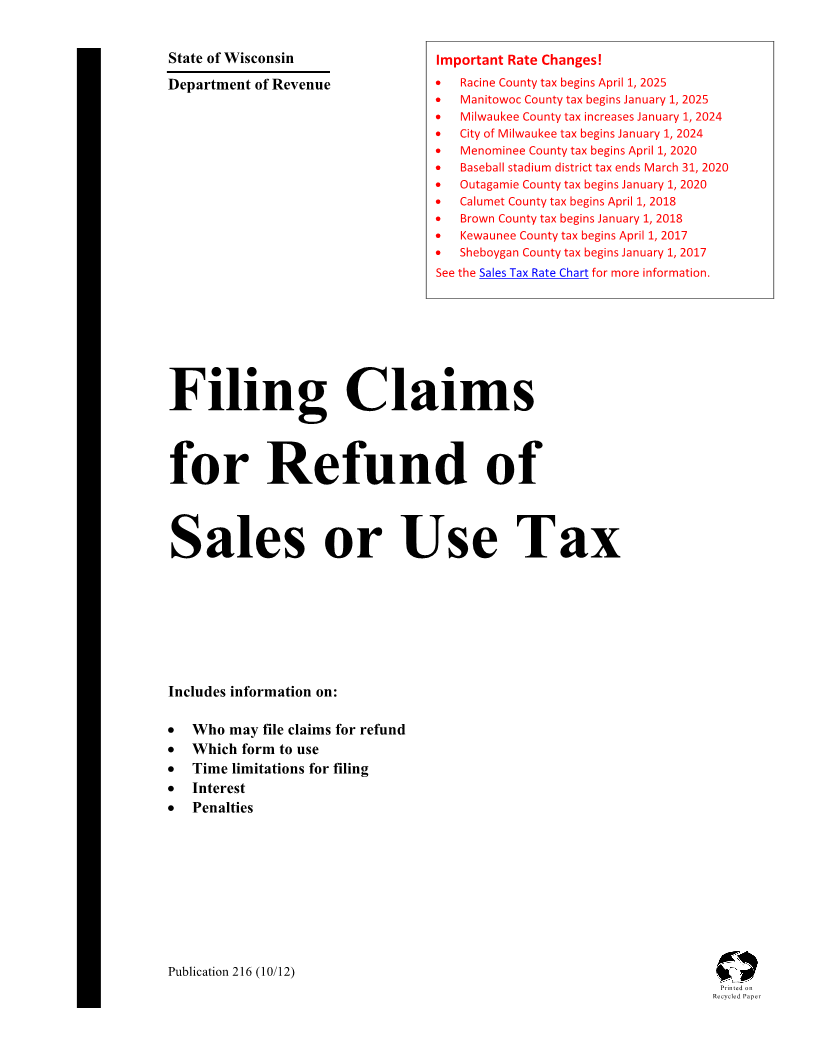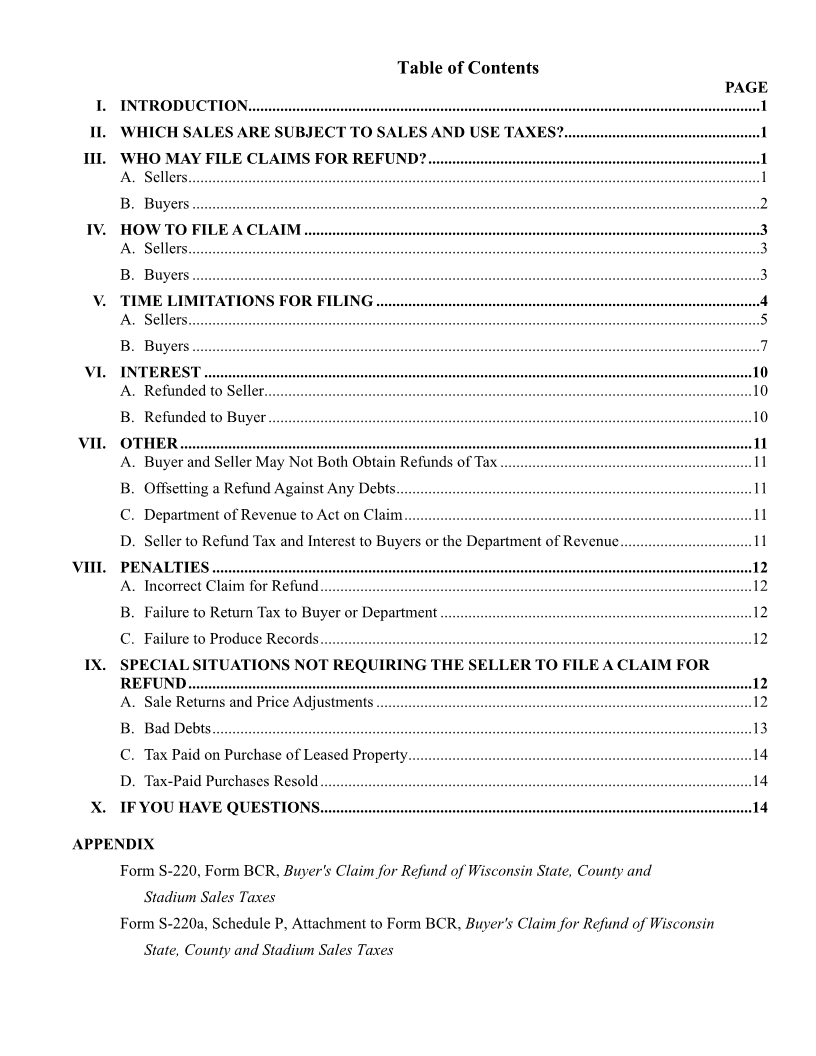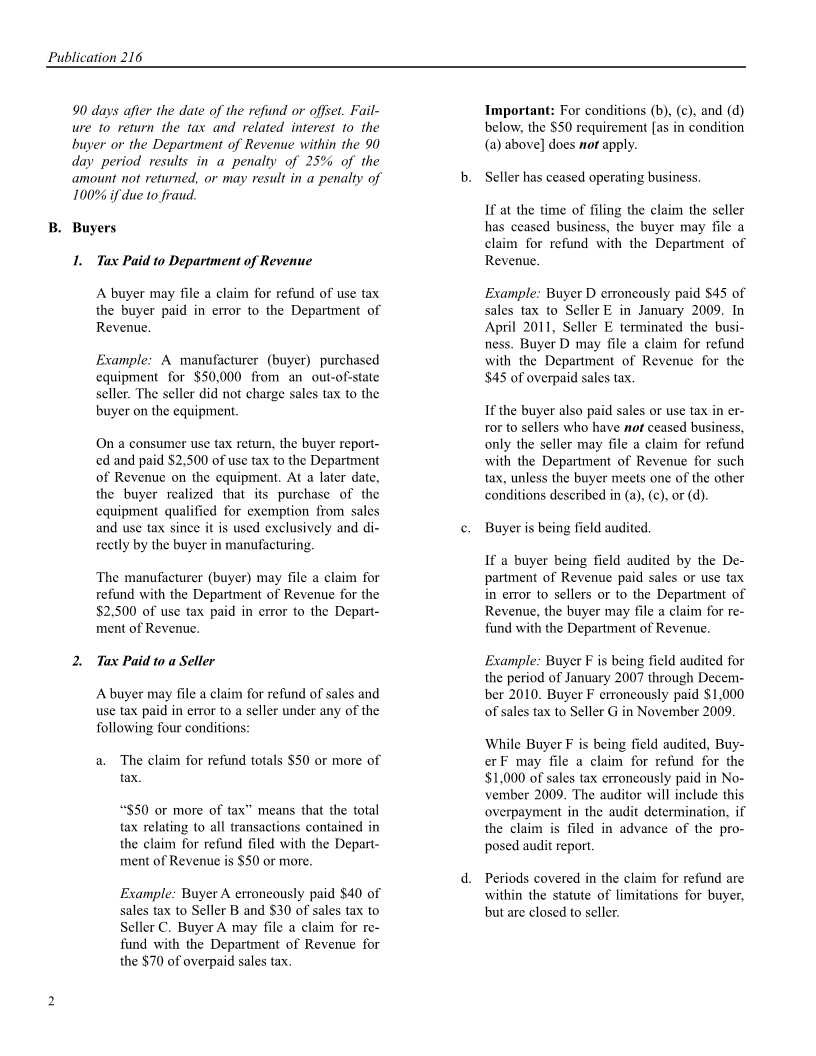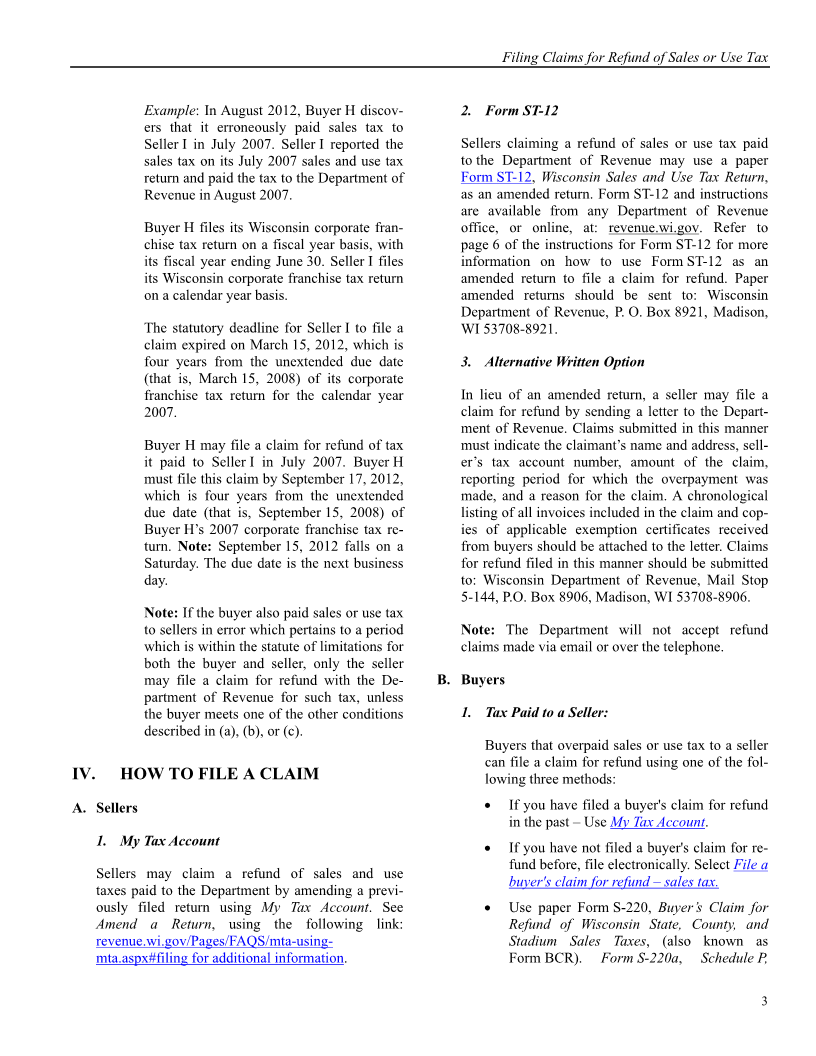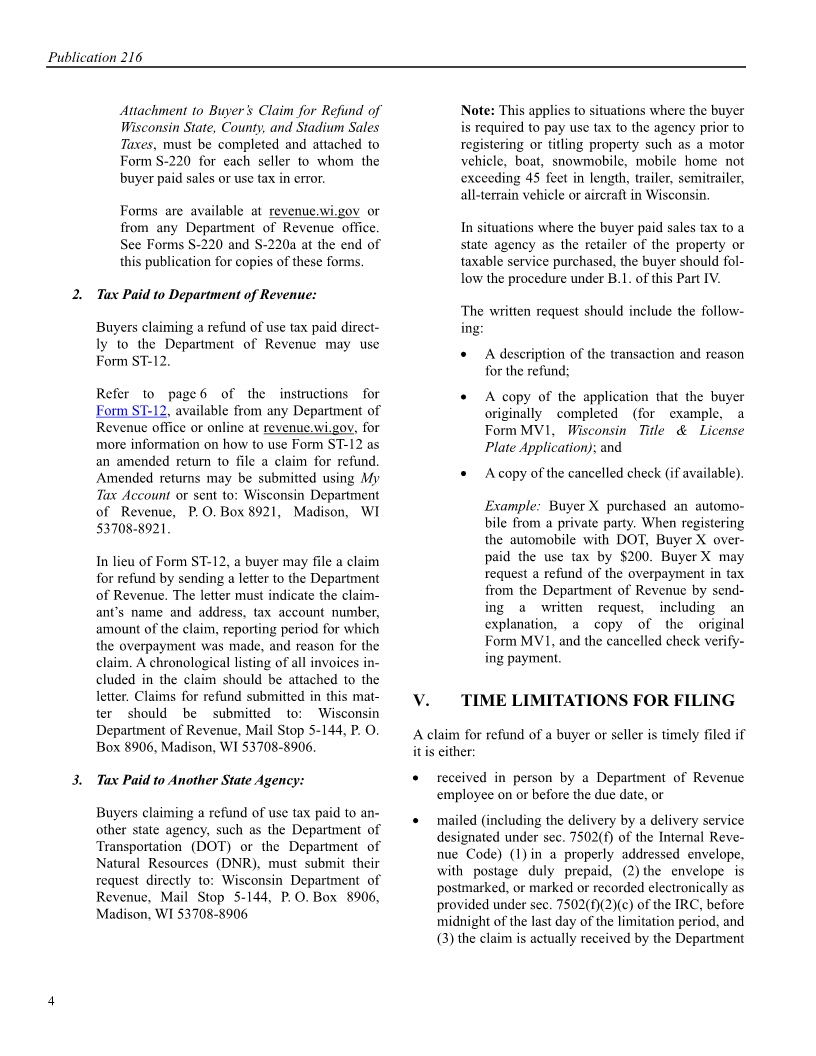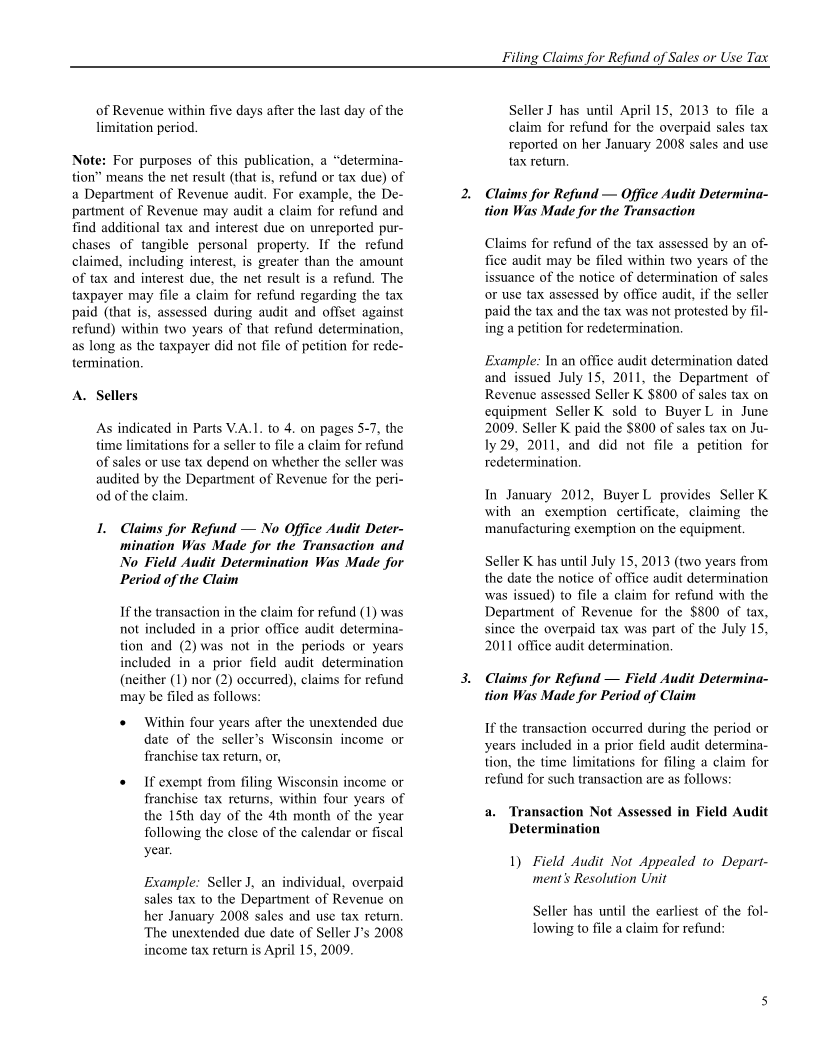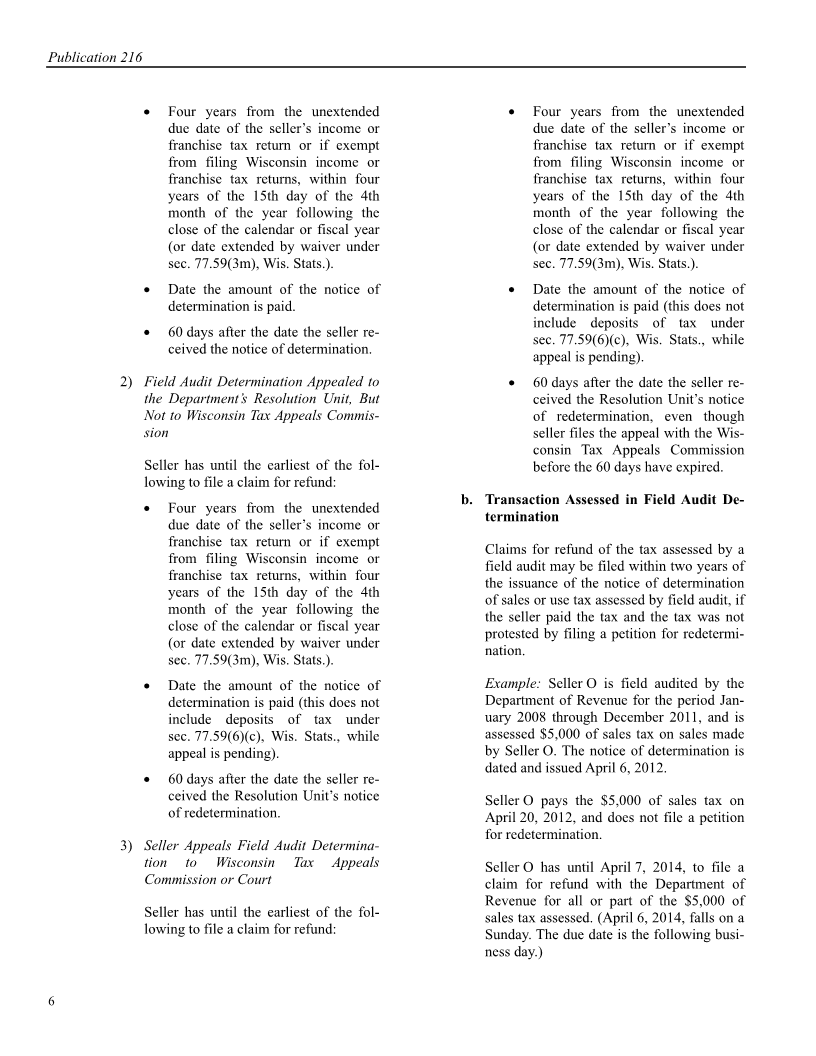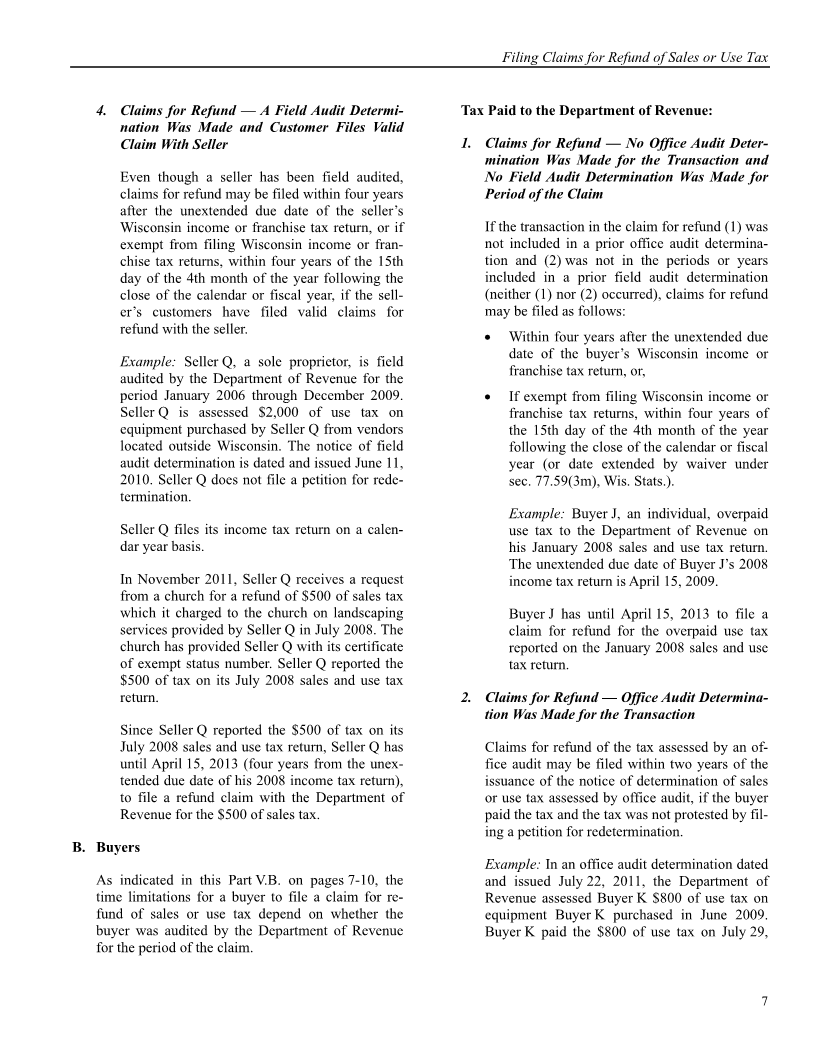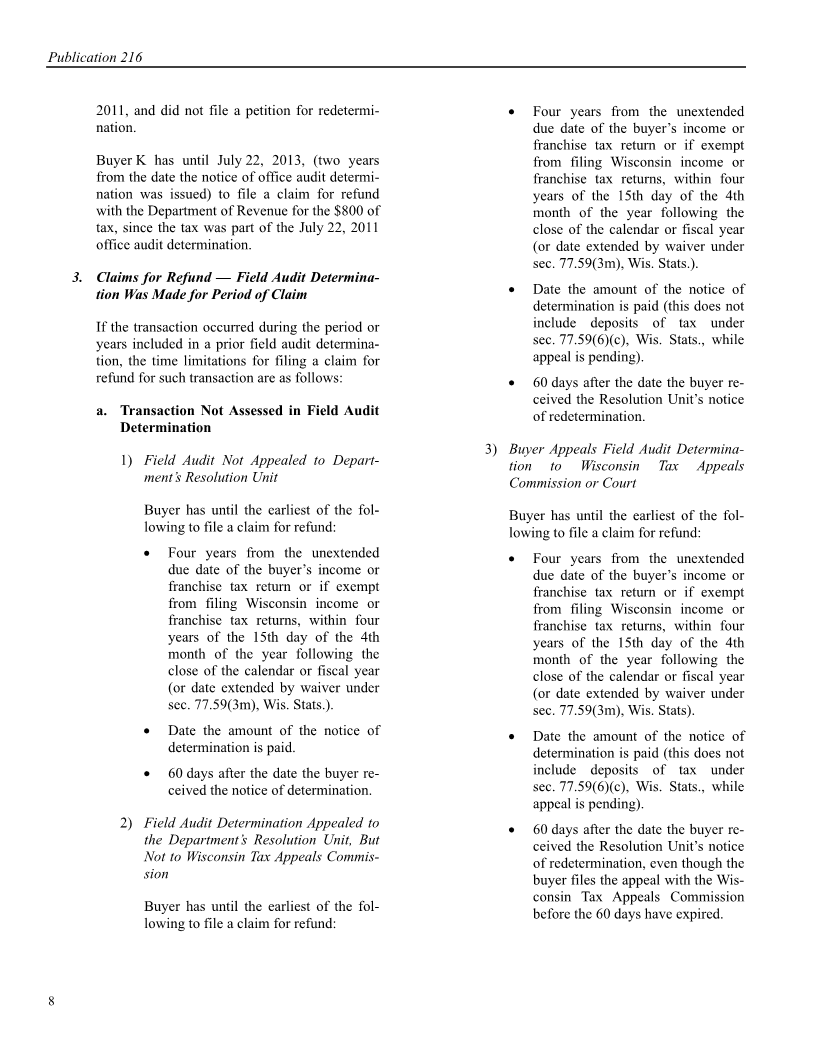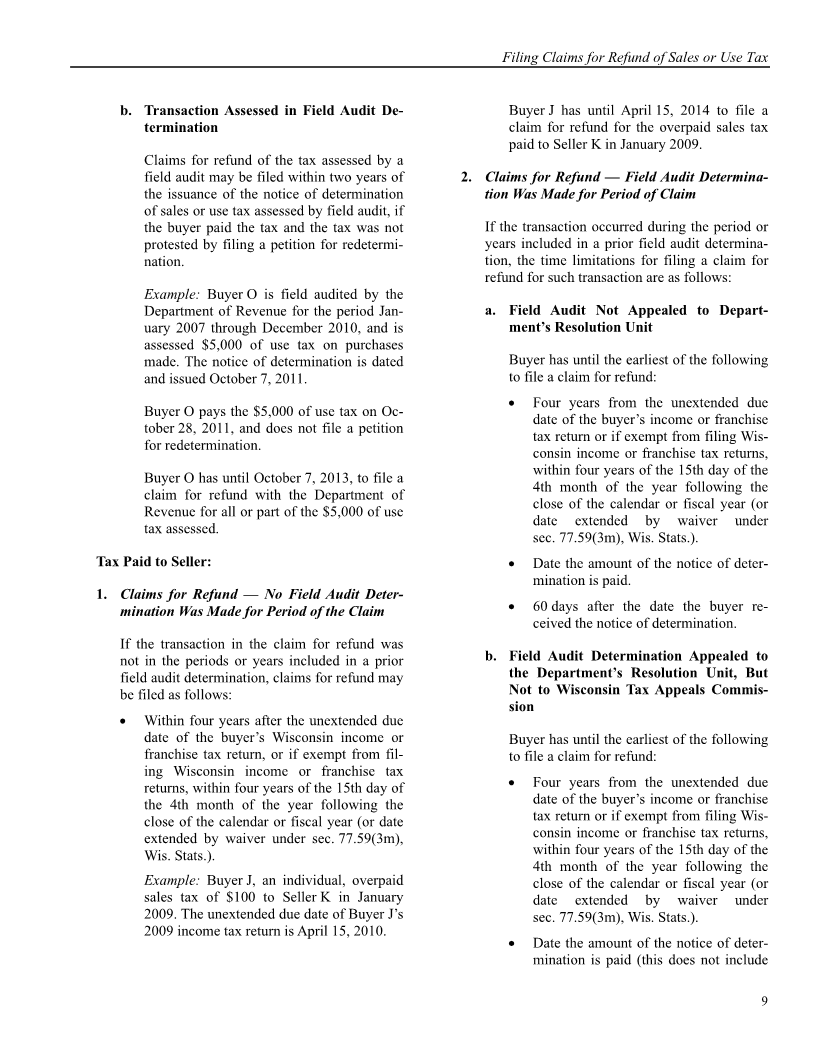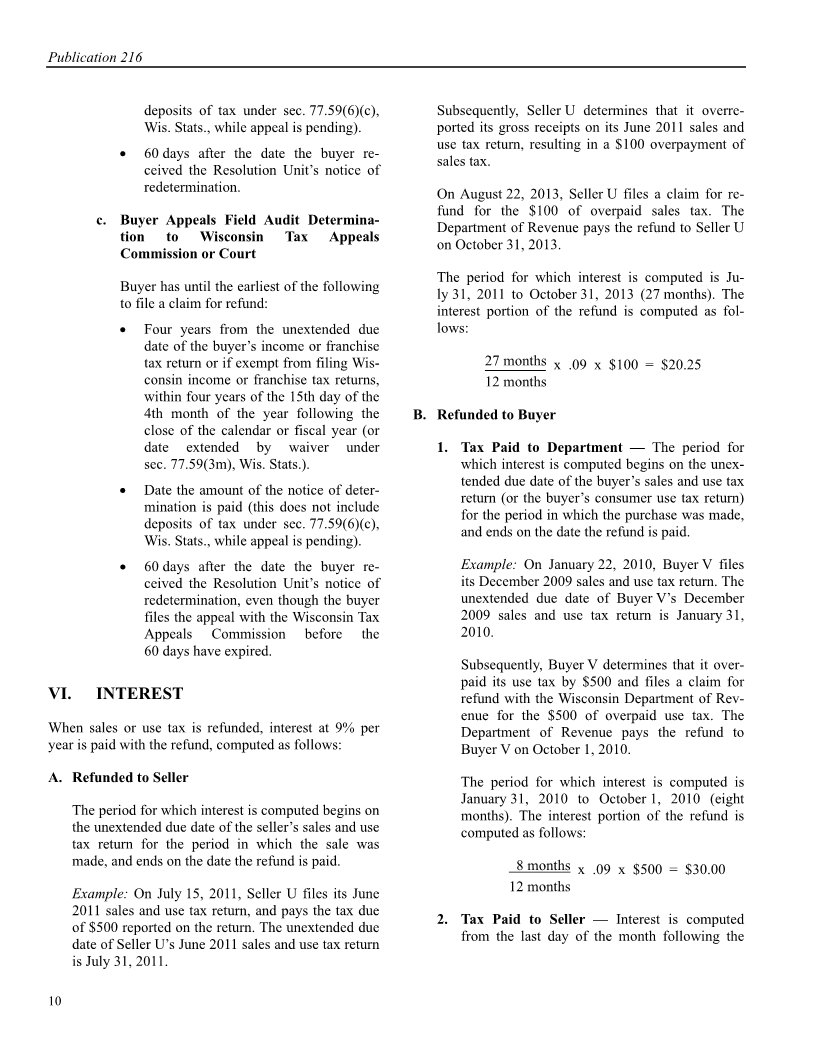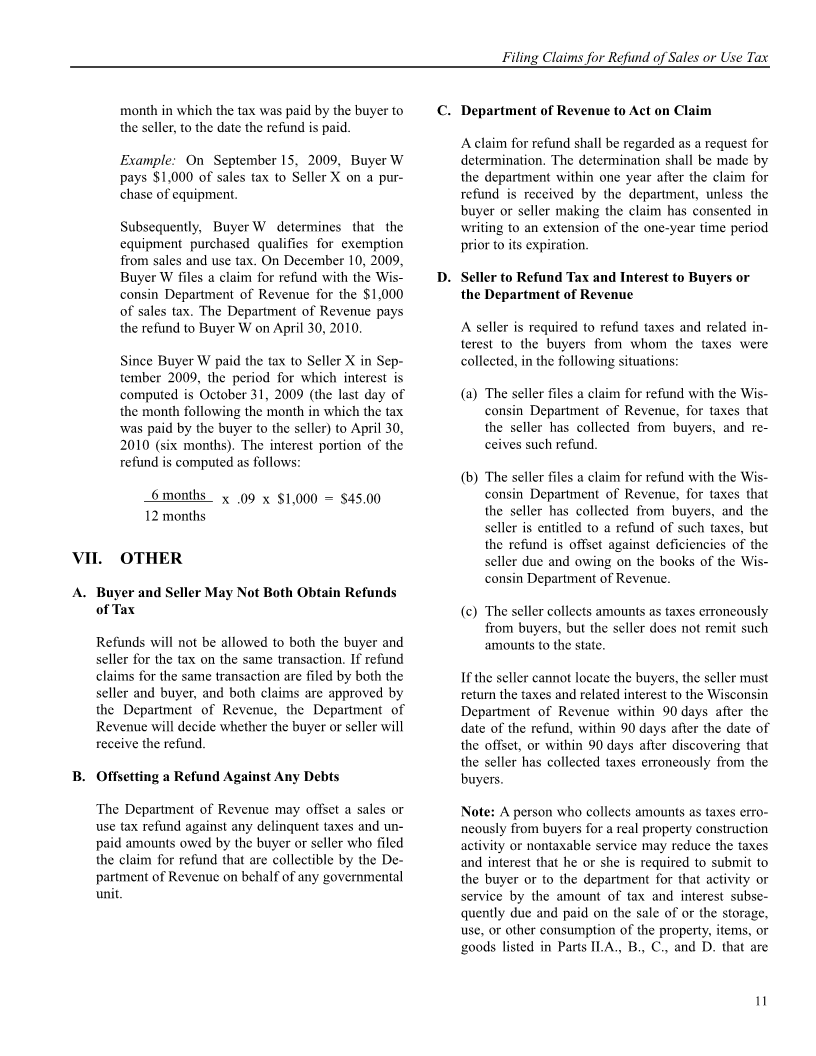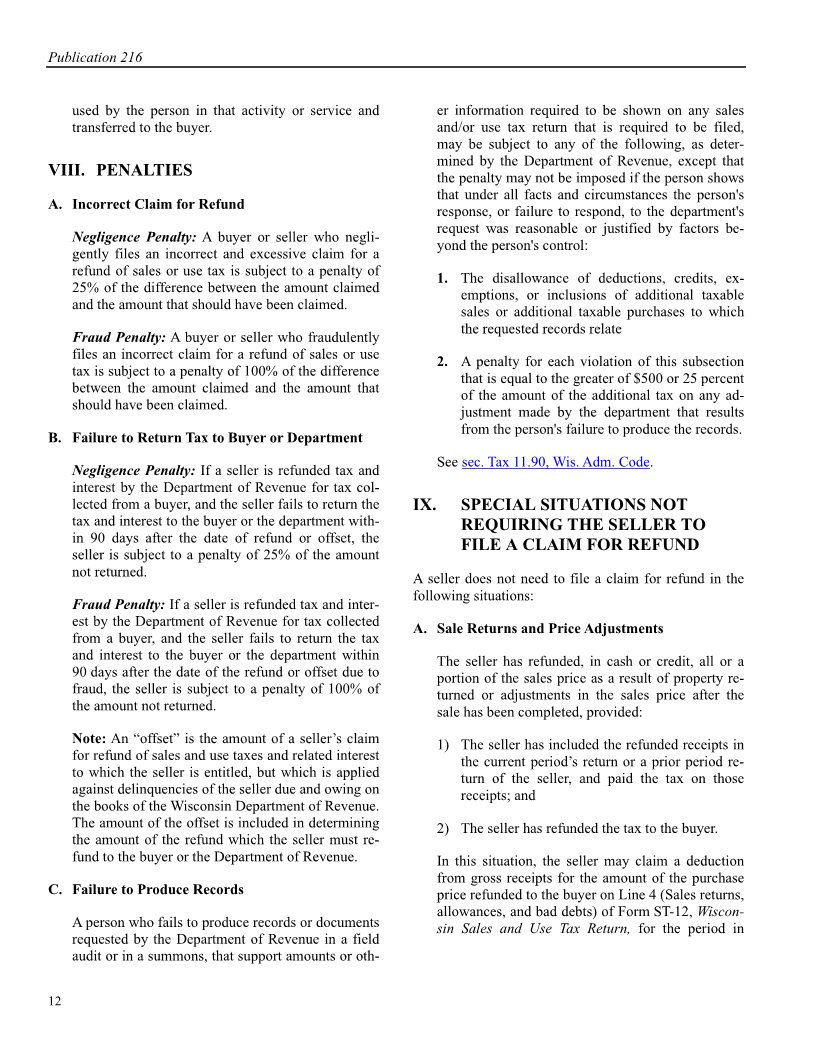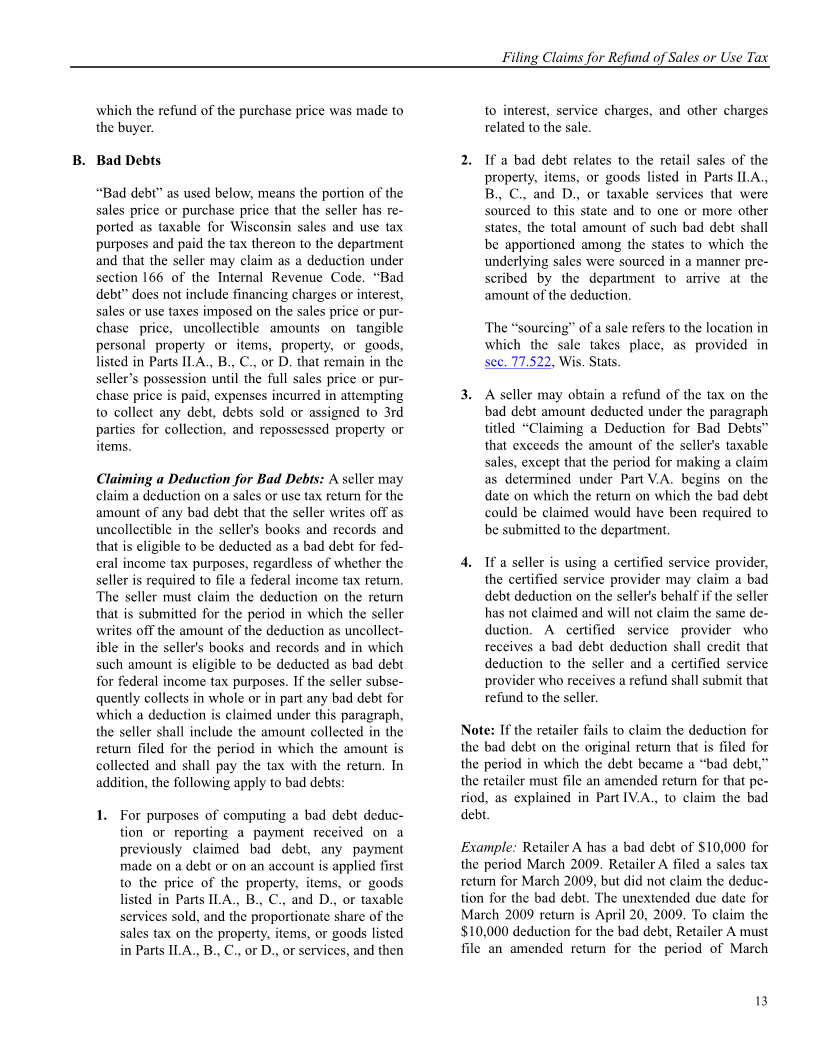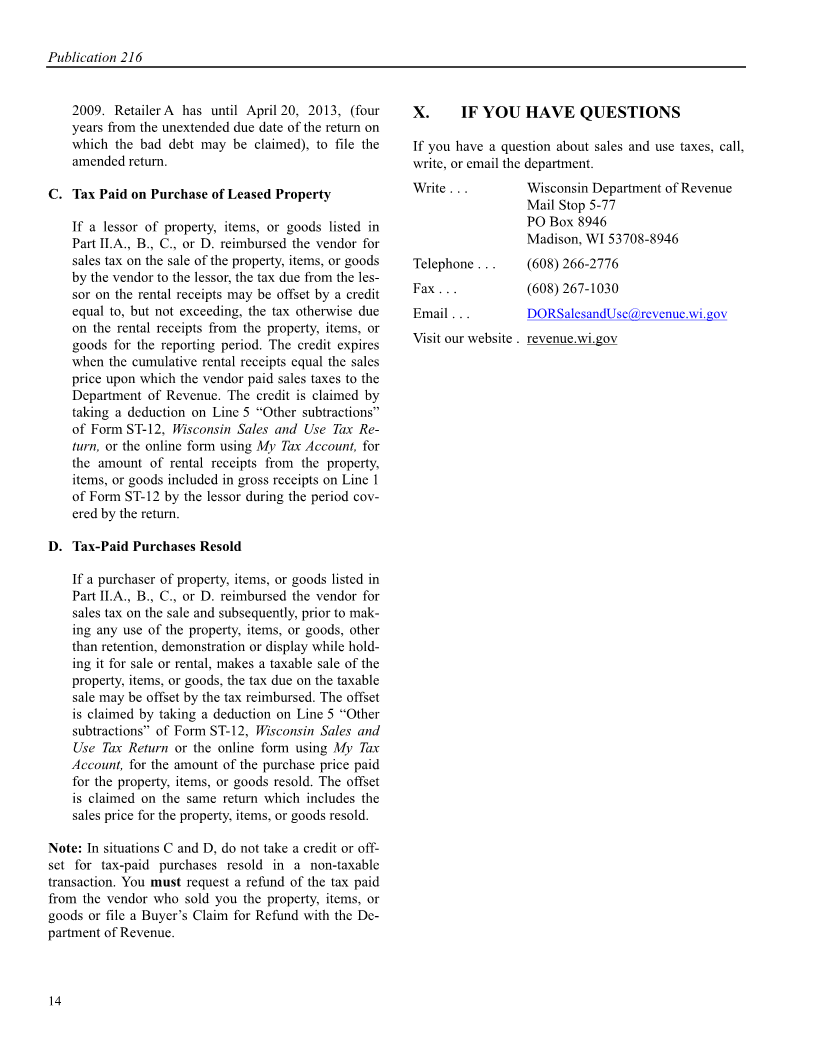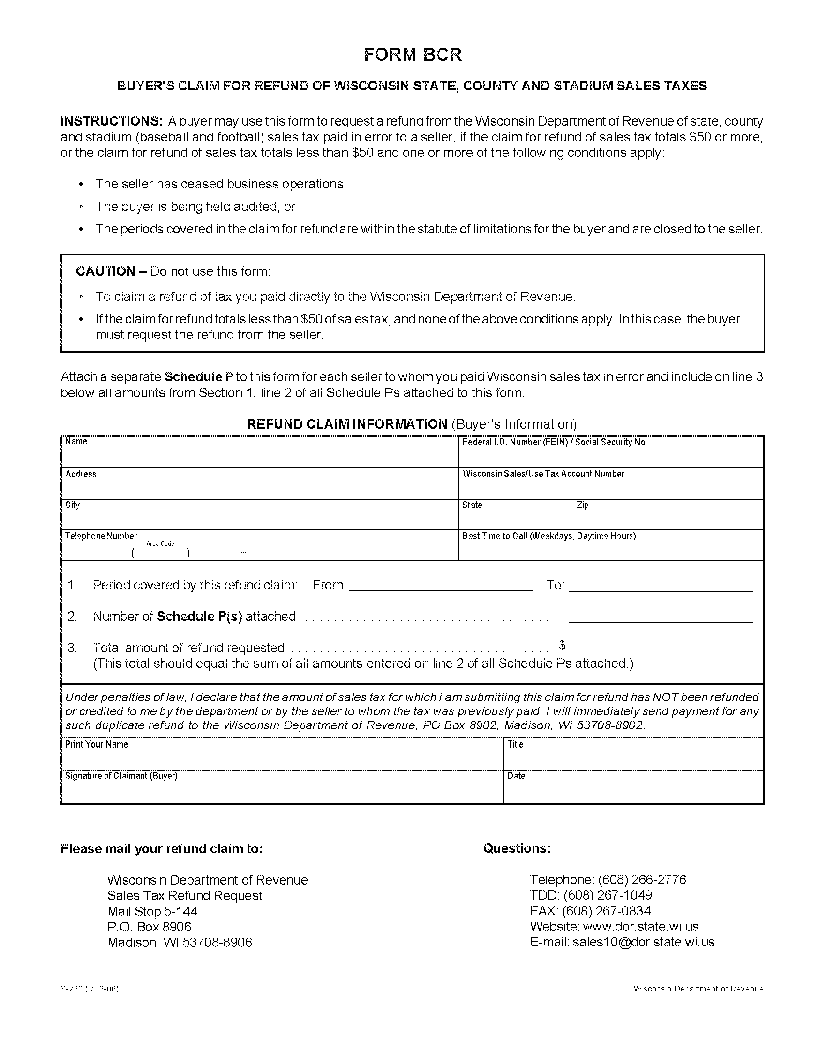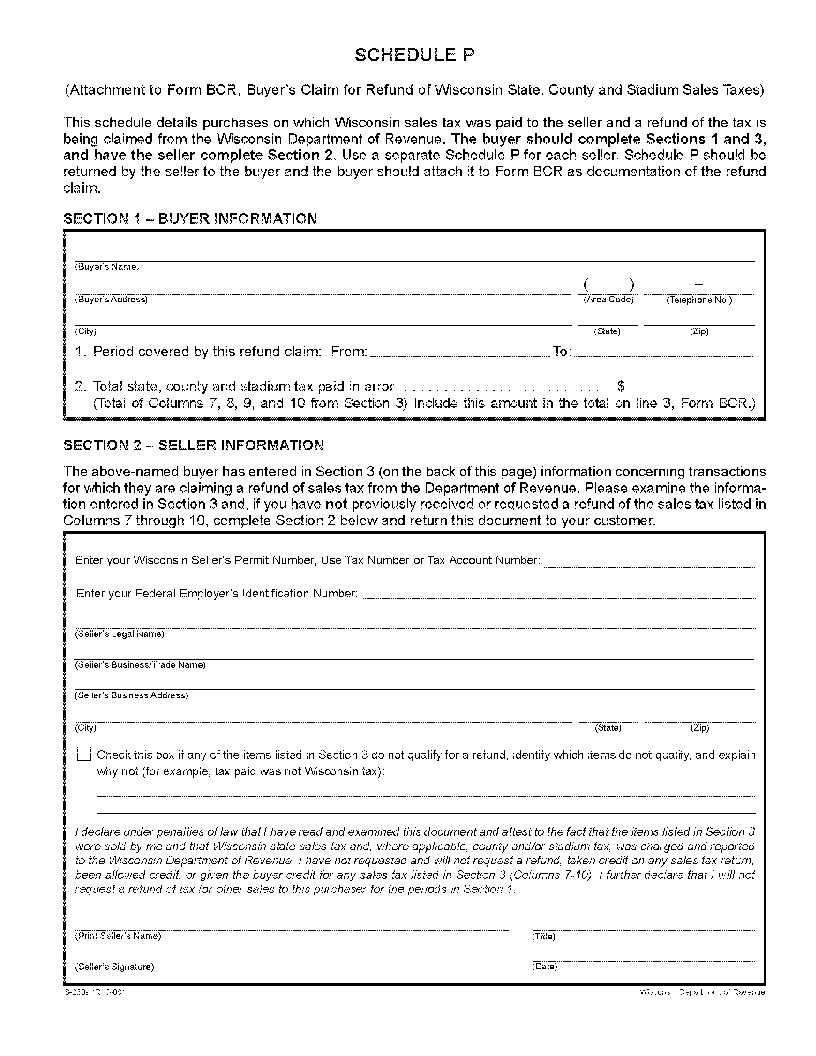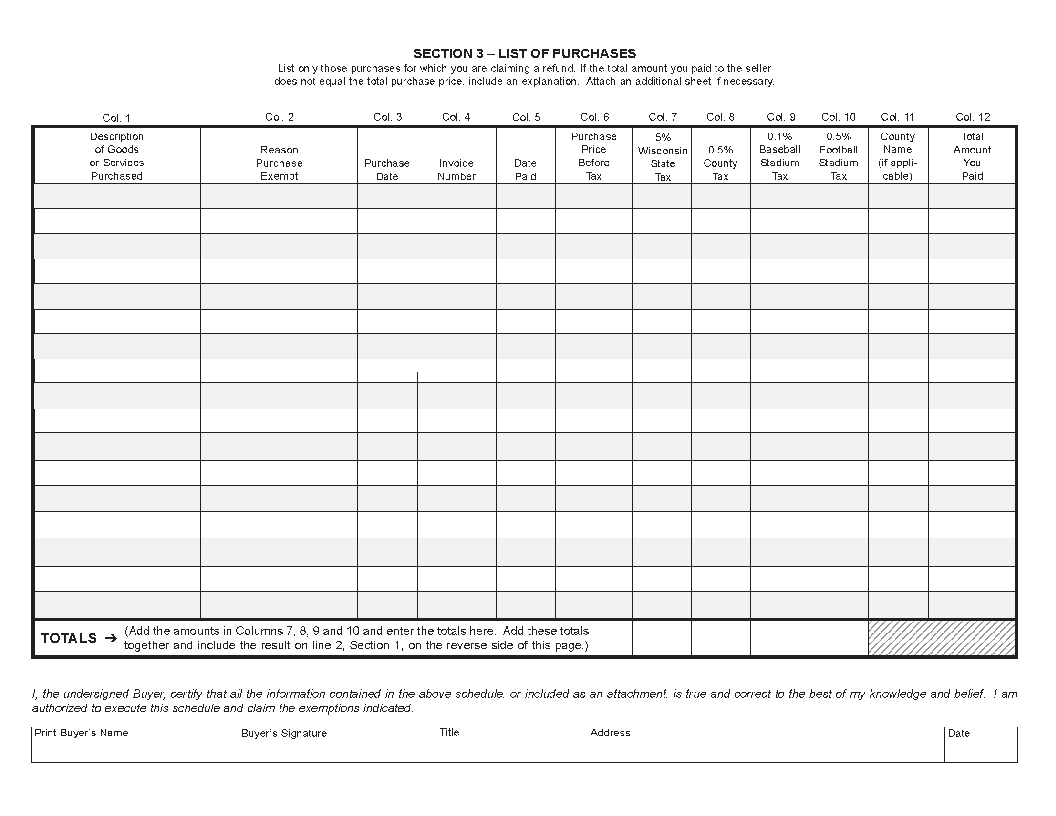- 3 -
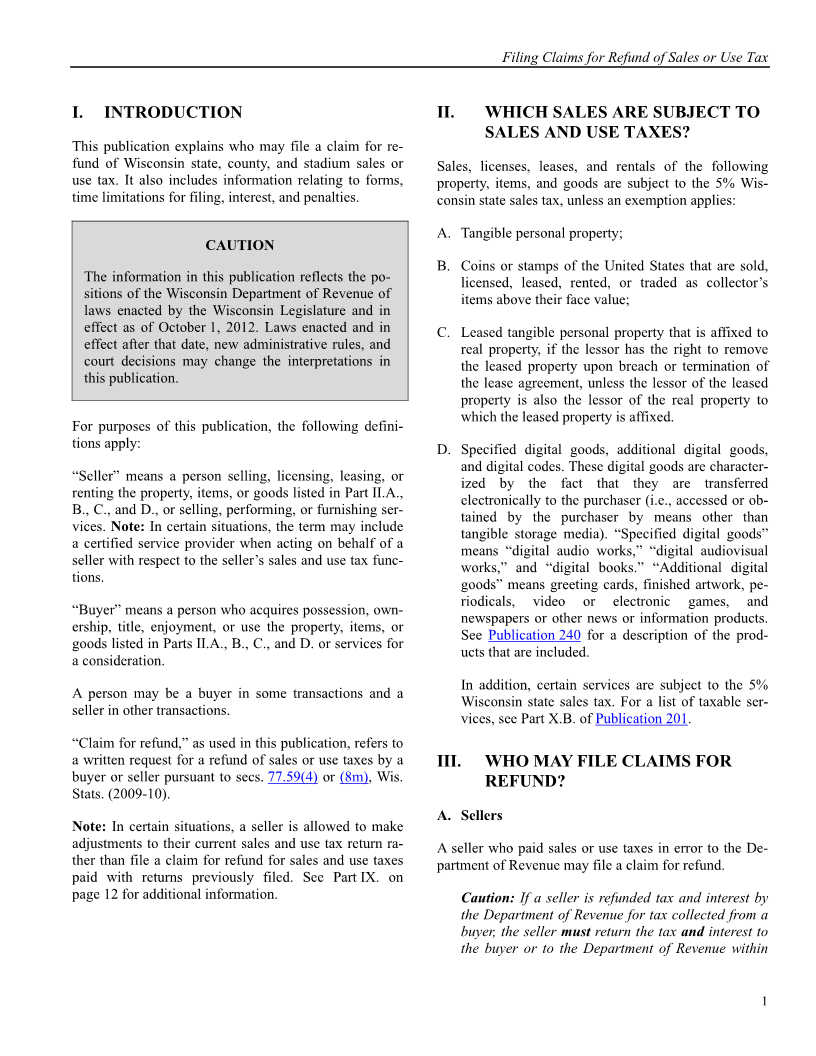
Enlarge image
|
Filing Claims for Refund of Sales or Use Tax
I. INTRODUCTION II. WHICH SALES ARE SUBJECT TO
SALES AND USE TAXES?
This publication explains who may file a claim for re-
fund of Wisconsin state, county, and stadium sales or Sales, licenses, leases, and rentals of the following
use tax. It also includes information relating to forms, property, items, and goods are subject to the 5% Wis-
time limitations for filing, interest, and penalties. consin state sales tax, unless an exemption applies:
A. Tangible personal property;
CAUTION
B. Coins or stamps of the United States that are sold,
The information in this publication reflects the po- licensed, leased, rented, or traded as collector’s
sitions of the Wisconsin Department of Revenue of items above their face value;
laws enacted by the Wisconsin Legislature and in
effect as of October 1, 2012. Laws enacted and in C. Leased tangible personal property that is affixed to
effect after that date, new administrative rules, and real property, if the lessor has the right to remove
court decisions may change the interpretations in the leased property upon breach or termination of
this publication. the lease agreement, unless the lessor of the leased
property is also the lessor of the real property to
which the leased property is affixed.
For purposes of this publication, the following defini-
tions apply: D. Specified digital goods, additional digital goods,
and digital codes. These digital goods are character-
“Seller” means a person selling, licensing, leasing, or
ized by the fact that they are transferred
renting the property, items, or goods listed in Part II.A.,
electronically to the purchaser (i.e., accessed or ob-
B., C., and D., or selling, performing, or furnishing ser-
tained by the purchaser by means other than
vices. Note: In certain situations, the term may include
tangible storage media). “Specified digital goods”
a certified service provider when acting on behalf of a
means “digital audio works,” “digital audiovisual
seller with respect to the seller’s sales and use tax func-
works,” and “digital books.” “Additional digital
tions.
goods” means greeting cards, finished artwork, pe-
riodicals, video or electronic games, and
“Buyer” means a person who acquires possession, own-
newspapers or other news or information products.
ership, title, enjoyment, or use the property, items, or
See Publication 240 for a description of the prod-
goods listed in Parts II.A., B., C., and D. or services for
ucts that are included.
a consideration.
In addition, certain services are subject to the 5%
A person may be a buyer in some transactions and a
Wisconsin state sales tax. For a list of taxable ser-
seller in other transactions.
vices, see Part X.B. of Publication 201.
“Claim for refund,” as used in this publication, refers to
a written request for a refund of sales or use taxes by a III. WHO MAY FILE CLAIMS FOR
buyer or seller pursuant to secs. 77.59(4) or (8m), Wis. REFUND?
Stats. (2009-10).
A. Sellers
Note: In certain situations, a seller is allowed to make
adjustments to their current sales and use tax return ra- A seller who paid sales or use taxes in error to the De-
ther than file a claim for refund for sales and use taxes partment of Revenue may file a claim for refund.
paid with returns previously filed. See Part IX. on
page 12 for additional information. Caution: If a seller is refunded tax and interest by
the Department of Revenue for tax collected from a
buyer, the seller must return the tax and interest to
the buyer or to the Department of Revenue within
1
|
